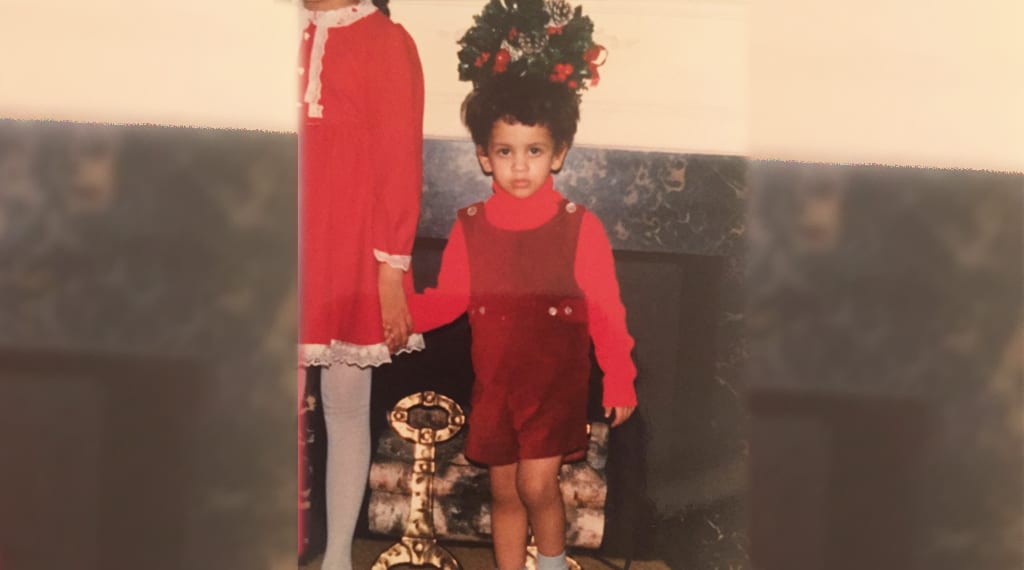We gays are a celebratory people.
We’re known for our kikis, our themed parties, and our parades. We kick off the summer season by bathing the city in rainbows and glitter, and we’ve outmaneuvered the children by transforming Halloween into a masquerade for the ages. Hell, we even invented brunch, which is perhaps the most bourgeois of celebrations. “Let’s celebrate eating breakfast at lunch because we’re too lazy to get up!” Yes, we did that.
And yet the holiday season — arguably the most celebratory time of the year for much of the Western world — is a pretty sedate time for queer people.
Don’t get me wrong — the holidays are stressful for pretty much everyone. The tangled lights, and the bills, and the pressure to make things perfect. The lead-up is an orgy of planning and spending and navigating crowds and preparing yourself for the psychic traumas that come with the disruptions of routine and reconnecting with people from the past.
It’s an exhausting dance, and one that can trigger an inordinate amount of anxiety and depression in the average person. I mean, I once burst into tears in an Apple store. (Why is that store alway so busy? Don’t these people have jobs? And if they don’t, how can they afford such expensive products?) And that’s not even factoring sexuality into the equation.
Because, let’s face it, the yuletide is most definitely not gay, despite what Judy Garland sang all those years ago. Aside from the traditional religious associations, the season is one of bringing your biological family together, reflecting on the past and celebrating tradition.
“Let’s face it, the yuletide is most definitely not gay, despite what Judy Garland sang all those years ago.”
It’s about looping yourself back into a story that has been going on for generations, is ingrained in all our cultural institutions, and one that likely never had any queer people in it because they weren’t welcome at the table. They were out being busted by cops or living in secret or terrified for their lives. It’s a bit of a bummer.
Even in 2017, most of the queer people I know tend to handle the holidays with kid gloves, and I say this as a (very, very out) homosexual person with a supportive immediate family. I wonder how much of that acceptance is conditional, or if perhaps a peck on the cheek or holding hands could shift me out of favour, or make someone uncomfortable or make a space that had otherwise been so welcoming become hostile. You hear those holiday horror stories about family dust-ups, and you always wonder if it could happen to you.
None of this is particularly surprising, given that the road to self-acceptance and self-actualization is a long one. Returning to even the most open-minded home can still feel a lot like taking a step back into old expectations. You cross that Toronto border into the suburbs of Etobicoke, and suddenly it’s the late ’90s all over again, complete with chunky streaks and seashell necklaces.
Every Christmas, I find myself continually negotiating how much of myself to share with family, or I am reminded of how much of my path may have diverged from heteronormative expectations, by tiny little reminders still around my family’s home: the horrifying prom photo with the ex-girlfriend my mother LOVED (“How is Simone doing? Have you talked to her lately?”), or the childhood bedroom with posters of famous male athletes you “admired” but with whom you definitely did not want to have sexual intercourse, no siree, Bob. It’s the Ghost of Heterosexual Past.
You feel forced to inhabit an outdated version of yourself that you’ve outgrown. It’s a lot like going back to your childhood closet and shoving yourself into that old scratchy sweater from middle school. Chances are it doesn’t fit anymore, and you hate the way you look in it. It’s not you anymore.
Plus, with mainstream queer acceptance a fairly recent phenomenon, you’re often required to frame yourself and your relationships in terms that are palatable and immediately relatable to straight people. Don’t worry, folks! We’re JUST like you. This form of acceptance is as much a curse as a blessing, as it requires a lot of role-play.
Perhaps you tweak your relationship origin story, as when a close friend told his family he met his partner during a coffee date meet-cute rather than a raging bathhouse all-nighter. Or like when another friend had to double down on the illusion of monogamy and the desire to have children when, in actuality, she and her partner have an open relationship and no intention of supporting any lifeforms that don’t walk around on four legs.
“Many of the members of our queer family don’t have a seat at the table at all.”
If you have a partner who is welcome to join you at the table, they have to look and act the part to the nth degree, and there’s the added stress that if the relationship doesn’t last, you’ll end up reinforcing some kind of negative stereotype about homosexuality and commitment. And even in putting on a bit of a more traditional, conservative show, you still have to navigate inappropriate questions and embrace stereotypes. “Which one of you is the husband and who is the wife?” “Do you think your lifestyle is appropriate for young children?” “Are you interior designers?” “Does this belt match my purse? Should it?”
And if you don’t have a partner, that’s a WHOLE other can of worms. It makes your homosexuality theoretical rather than practical, which can also help to reinforce those very same damaging stereotypes:
“Is your homosexuality a choice, and one that can be reversed? I mean, have you *really* tried being with the ‘opposite’ sex, JP? Maybe you’d like it. Or perhaps you’re one of the dysfunctional bachelors from The Boys in the Band, incapable of making lasting relationships, attaching yourself to inappropriate objects of affection and, ultimately, on a path to self-destruction? Like, maybe things didn’t work out with Peter because you’re a broken person!”
(I know it’s a bit of a reach to expect a heterosexual to be conversant with The Boys in the Band. It’s a bit . . . niche. Don’t ever watch that movie by yourself, by the way. The title is deceptive. There is no band. This is not a feel-good film.)
“A higher proportion of LGBT people suffer from depression — particularly around the holidays.”
And as my privileged, cisgender self blathers on and on about the challenges of navigating mainstream acceptance, I should definitely note that many of the members of our queer family don’t have a seat at the table at all. Some do not have a home to return to during the holidays, and can feel alienated from a culture that demands they put on a smile and pretend that everything is okay.
All of this cultural focus on the past can bring up painful reminders of trauma, and studies show that a higher proportion of LGBT people suffer from depression — particularly around the holidays. It’s also a season when alcohol flows aplenty. And of course none of the challenges I’ve mentioned here are anything compared to the systemic discrimination our trans brothers and sisters continue to experience.
To put it simply, the holidays can be a lot for queer people, whether we’re talking about superficial seasonal pressures or the more complex familial ones. Going into it, you have to be kind to yourself, and give yourself the space to deal with it.
And yet still, we are a celebratory group! We’ve taken a difficult road to self-acceptance by breaking away from tradition and forging a new identity that is more authentic to who we actually are.
We aren’t defined through the same traditions and expectations, and that affords us the ability to redefine what love and intimacy can look like and teach others to be more honest with themselves. We’ve also surrounded ourselves with like-minded, supportive people (or our logical family,” as Armistead Maupin puts it) and a community willing to fight for our right to sit at any table.
Things are changing, and we’re helping to expand cultural notions of what a family can be. In time, maybe we’ll be able to enjoy the holidays much like everyone else, but on our own terms.
But until then, we’ve found ways to spin the mundane into opportunities for joy. I mean, sure the holidays are fine or whatever, but what about LATE BREAKFAST ON THE WEEKEND. That’s right.
Late breakfast. On the weekend.
A CULTURAL PHENOMENON. We’re that powerful.
Brunch. Now that’s a reason to celebrate.


 Why you can trust Xtra
Why you can trust Xtra


